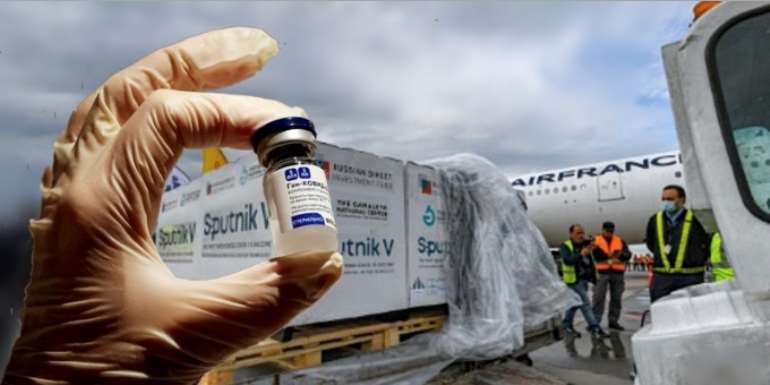Russia Hopes To Boost Vaccine Production At Home And Abroad

Undoubtedly, Russia faces vaccine production challenges to meet the market demand and make prompt delivery on its pledges to external countries. As vaccine production and distribution intensifies, rivalry and competition strengthen and the fight for market share and its associated disinformation abound.
Russian President Vladimir Putin has, oftentimes and explicitly indicated that for Russia to boost sustainable supplies it has to build its domestic production capacity while, at the same time, searching for production partnership with a foreign country.
During a meeting with the participants in the nationwide mutual assistance campaign We Are Together on March 4 in the Kremlin, Putin stated that "we still have many problems to deal with, but the fact is we have managed to overcome the challenges at hand far more effectively than many other countries with fairly well developed healthcare systems."
Russia's Sputnik V has been registered in some 45 countries. "Indeed, we have every reason to be proud because our vaccines are the safest and most effective in the world. We have developed the second and third vaccines. And the medicines are very good and meet world standards and levels. Avifavir and some others are rather expensive, but everything is issued free of charge," he stressed.
"Some matters are not linked with production, although I have repeatedly noted this publicly. There is nothing to be ashamed of, and we need to expand production volumes. We simply never had the required amount of equipment for manufacturing vaccines in such huge volumes. We are expanding production, and we will continue to do so, we will manufacture the vaccines. Production has already been launched outside the Russian Federation, that is, at idle facilities that are available there," he said.
In his wide-ranging annual media conference held on December 17, Putin explained that as the pandemic spreads, millions of coronavirus vaccine doses would have been produced. "Production of vaccine requires relevant plants, enterprises, and hardware — all that will be scaled up," he said.
With regard to cooperation with other countries, it will boost the technological capabilities of enterprises to produce the vaccine. Foreign countries will invest their own money into expanding their production capacities and purchasing the corresponding equipment.
"As for cooperation with foreign countries: nothing is stopping us from manufacturing vaccine components at facilities in other countries precisely because we need time to enhance technological capacities of our vaccine manufacturing enterprises. This does not hinder vaccination in the Russian Federation," he informed.
"Russia is sending the Sputnik V vaccine abroad despite a deficit of the serum inside the country in order to occupy a leading place in the battle for the pharmaceutical market," according to Ilya Grashenkov, head of the Center for Regional Development (ura.news/news/1052475760).
What makes the decision of the Kremlin to send domestically produced vaccine abroad so disturbing is that Russian officials have long acknowledged that the Russian pharmaceutical industry lacks the capacity to produce enough vaccine even for domestic use and has sought with some success to get companies abroad to produce it under license.
In the current competitive trend, there are other vaccines such as Oxford/AstraZeneca, Johnson & Johnson and Moderna have equally become popular in the world. China has approved four vaccines developed by three Chinese companies for general use.
AstraZeneca is a very good company whose vaccine is 61 percent effective, and Sputnik V vaccine has an efficiency of 91.6 percent. Pfizer is a global company with a remarkable scientific research base. As well-known, India is home to one of the world's largest vaccine manufacturers, the Serum Institute of India, as well as other vaccine companies producing candidates.
Russia works with AstraZeneca after signing partnership agreement. They proposed a joint project with our Gamaleya Institute to develop a joint product and improve the level of protection ensured by their vaccine. "Only by combining efforts, I am saying this for the second time at this meeting, we can achieve the desired result around the globe. The result we need is of a truly global nature, a global result," Putin explained with high optimism.
World Health Organization's Representative to Russia, Melita Vujnovic, has said the coronavirus situation in Russia has been improving, noting further that the "vaccination situation looks optimistic," especially given the fact that three registered vaccines. According to the data from Russia's Anti-Crisis Center, there are currently 302,281 active coronavirus cases in Russia.
World Health Organization (WHO) has declared the coronavirus outbreak a pandemic since March 2020. Since then, nearly 120 million cases have now been reported to this organization, and more than 2.6 million people have lost their lives. *This article was first and originally published by IDN-InDepthNews
